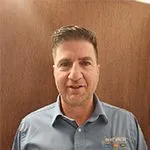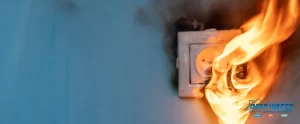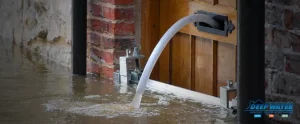Mold is a fungus like mushrooms and yeast that plays a vital role in helping decompose organic matter. It grows on plants, timber, paper, fabric, cardboard, and in just about anything that has moisture.
Mold characteristics may vary, but this fungus can be found in many homes and buildings. While most of them are generally benign, the problem usually begins when they grow and multiply because they can expose you to several health risks and even weaken the foundation of the home.
Types of Mold
Although there are more than 100,000 mold species in the world, many of these can be grouped under three major types as listed below.
1. Allergenic
Allergenic molds are considered the least dangerous per mold statistics. However, they can prove to be problematic for those who have asthma or allergies as these fungi can trigger an attack.
2. Pathogenic
This type of mold can be dangerous, not just for those suffering from various ailments, but also for those who are generally healthy.This is because exposure to pathogenic molds can lead to hypersensitivity pneumonitis (an acute reaction resembling bacterial pneumonia).
3. Toxigenic
This mold type can cause severe health problems because it produces mycotoxin, a harmful chemical when inhaled. The disorders that toxigenic molds can cause can either be temporary (eye irritation and cough) or permanent (cancer and neurological disorders).
Interesting Mold Facts
Many homeowners hardly consider molds as their friend. This is totally understandable, but there are several interesting things about molds that will likely surprise, amaze, and astound you simply because you didn’t know. Below is a list of interesting mold facts that will make you take a second look at this common household fungus.
1. Molds are Edible
If you’re a cheese-lover, there’s a good chance that you’ve eaten mold. Its active spores are part of the ingredients of blue cheese and are actually responsible for the food’s rich flavor.
2. Dead Molds are Deadly
Even after the live mold spores are killed, these can still cause problems that may last for decades. Whether they are alive or dead, molds can produce allergens, irritating substances, and potentially toxic substances which can affect your health and cause allergic reactions if inhaled or touched.
3. Molds Have Brains
One mold specie, the Physarum Polycephalum, doesn’t actually have a brain but it uses its chemical processes to solve problems and aid in the organisms survival. Commonly known as “the blob”, this slimy mold can be trained to work towards a goal according to researchers.
Additionally, while molds can grow in unfriendly environments, they usually move around until they find a safe place where they can hide and grow.
4. Molds Like Dirty Lawns
Mold can grow in unmanaged lawns, especially those filled with dead leaves and other debris. This can lead to increased pollution and allergic reactions in those who are sensitive to molds.
5. Molds are Medicines
Of the many mold facts, this one shouldn’t come as a surprise, especially if you were a serious science student. Penicillium Chrysogenum, a common mold found in indoor environments, has gained international attention since Alexander Fleming discovered that it produces penicillin, a natural antibiotic.
6. Molds Can Walk
Although a walking mold is technically an exaggeration, there are actually molds that can take on the shape of a slime that has real mobility functions. These mold types can also sense their environment and change their course to escape danger.
7. Molds are WHO-Certified
Eight years ago, The World Health Organization officially declared molds to have contributed significantly to many health problems, including cancer, asthma, allergies, pneumonia, and miscarriages. WHO said that while mold facts show that the fungus does not directly cause death, it weakens the immune system so that more serious diseases can set in and take root.
8. Molds Have Sex
Microorganisms, including fungi and algae, can reproduce sexually just like animals and plants. Progenies can inherit genes from both their parents and have new properties, although with fungi, sexual reproduction takes place through the spores.
Often, the offspring spores are only able to bear the genes from one parent fungus. This is not the case though with Penicillium Chrysogenum, which scientists have long discovered to have the so-called “sex genes”.
9. Molds are Not Covered
This will be a bit disappointing, but any damage caused by mold infestation is not covered by many insurance policies. Neglectful mold maintenance is not a valid insurance coverage either. Mold remediation, however, is insurable, but only if the mold developed because of an accident like fire, lightning, or other sudden events.
10. Molds Like Christmas
One of the most amazing mold facts has to do with the Yuletide season. Fresh pine trees taken down from somewhere and brought indoors are often covered in mold. This can be seen in the form of white cankers, which penetrate wood and boughs. Cytospora, a mold variety that prefers spruce trees, can seriously cause indoor pollution.
Artificial trees can be used as alternatives to prevent molds from entering your home. If you still want live Christmas trees, however, you should at least try to remove the mold spores first by hosing them off before bringing the tree inside.
Key Takeaway
Molds can be problematic when they begin to grow at home, but you’ll probably consider getting a mold fact sheet once you find out several interesting things about this common household fungus. For example, you’ll be floored once you learn that you may have eaten molds at some point in your life, or that some mold types may just be thinking the same things as your next-door neighbor. What about the fact that you could be celebrating Christmas every year with molds or that your insurance won’t pay for any home damage that was caused by molds? These are unbelievable mold facts that will make you think twice about what to do with your furry guests. If you’re lost on what to do with molds despite the danger that they can bring, consider calling a mold removal expert.
Call Deep Water Emergency Services & Mitigation for advice on what to do with molds in your home.
Despite having several fascinating qualities, molds are fungi that can eventually ruin the structure of your home and even expose you to serious health risks. Deep Water Emergency Services & Mitigation can help you get rid of them the safe and effective way.
We have a highly-skilled mold mitigation Denver, CO, team that uses advanced technology and tools to ensure that your house molds are removed completely. Call us now to avail of our top-notch services.






